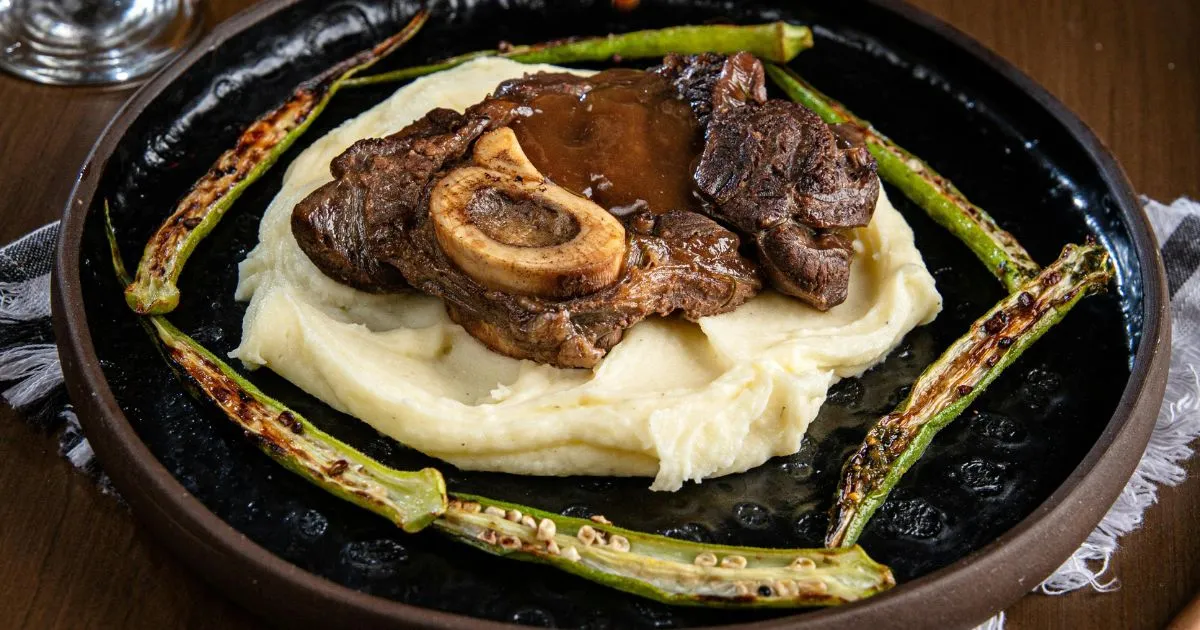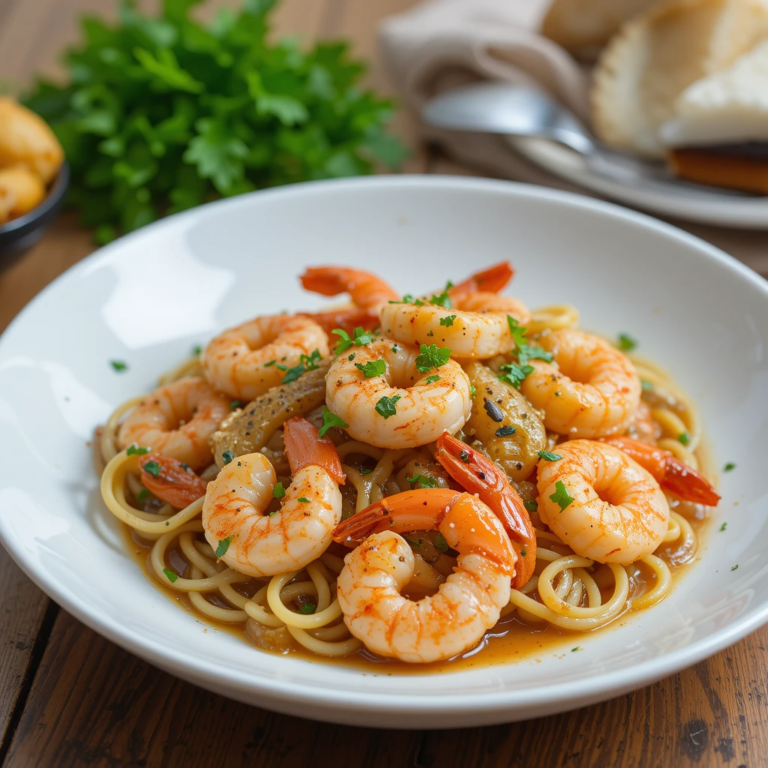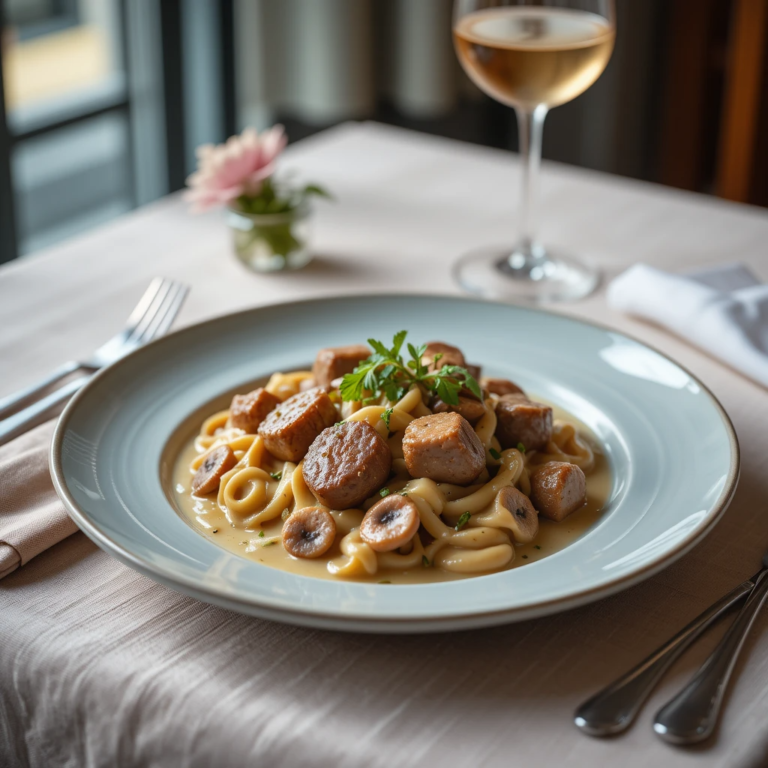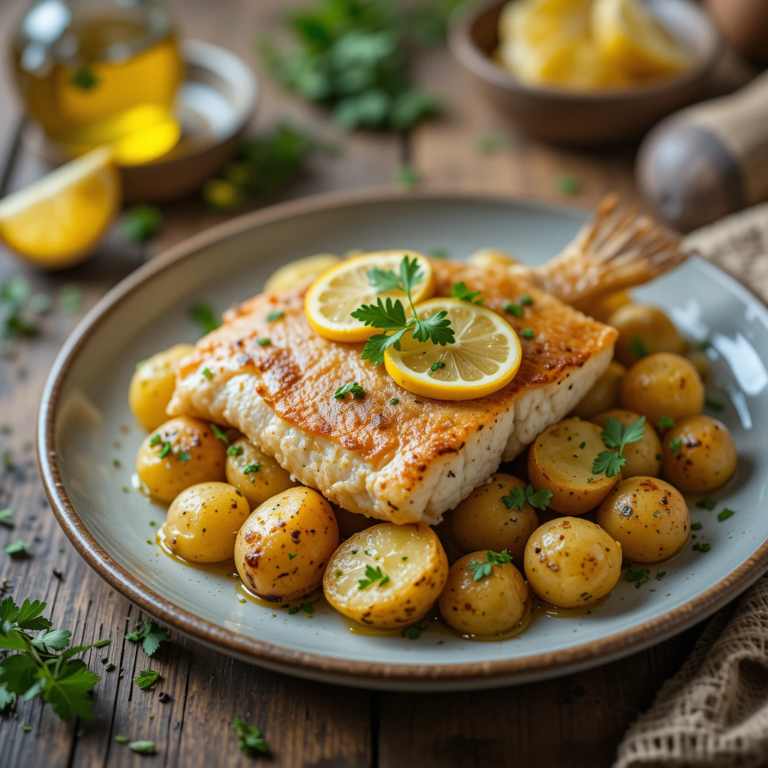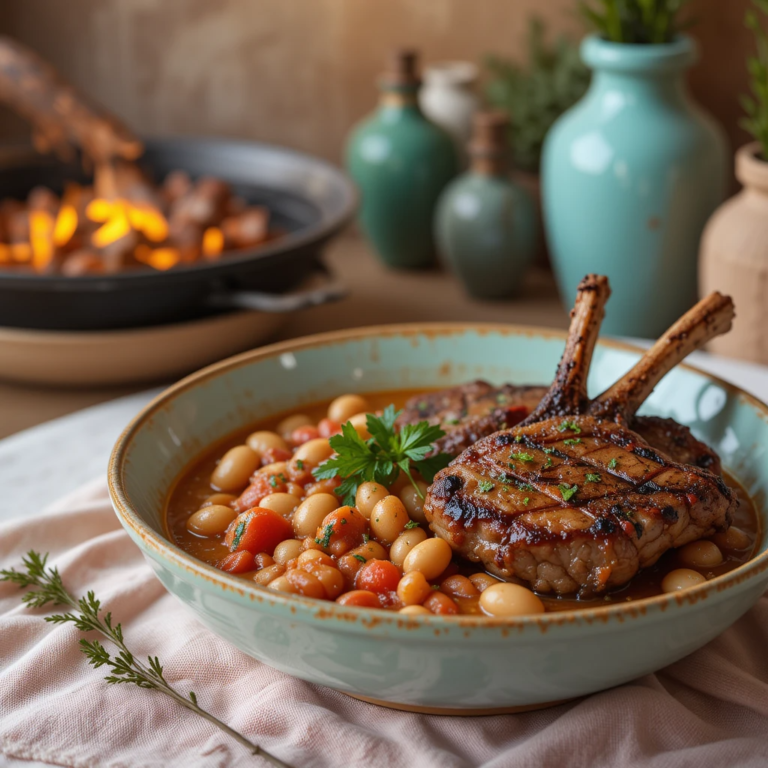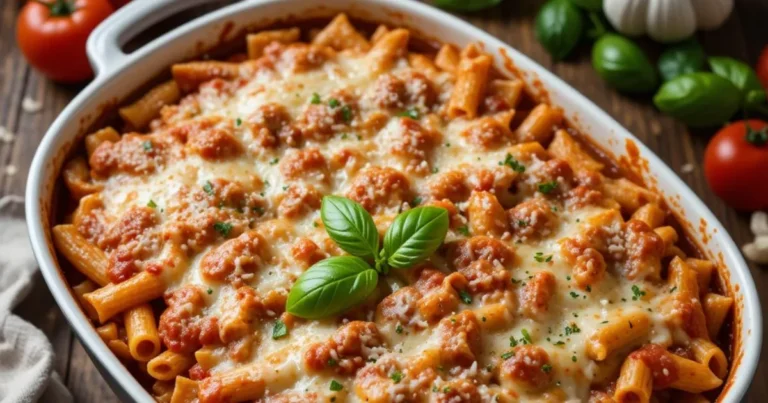Delicious Shank Steak Recipe
Table of Content /Shank Steak Recipe/
Beef shank is a culinary gem that turns tough meat into tender, flavorful dishes. It’s known for its rich marbling and deep connective tissue. This makes it perfect for home cooks to create restaurant-quality meals with little effort. A well-prepared shank steak recipe can elevate your dining experience.
Professional chefs love beef shank for its versatility and taste. It’s great for braising, slow-cooking, or pressure cooking. These methods ensure deeply satisfying meals that will wow your family and guests.
Key Takeaways
- Beef shank delivers rich, intense flavor profiles
- Slow-cooking methods work best for tender results
- Budget-friendly protein option for gourmet meals
- Adaptable to multiple cooking techniques
- Packed with essential nutrients and collagen
- Perfect for winter comfort food recipes
Understanding Beef Shank: What Makes This Cut Special
Beef shank is a unique and flavorful cut that turns simple ingredients into amazing dishes. It comes from the cow’s leg, packed with deep flavor and connective tissues. These make it perfect for slow-cooking.
Anatomy of Beef Shank
The beef shank is a tough muscle group in the cow’s leg. It has:
- Dense muscle fibers
- High collagen content
- Significant connective tissue
These features make beef shank great for braising and making dishes like beef osso buco.
Nutritional Benefits of Beef Shank
Beef shank is also good for your health. A single serving gives you:
- High-quality protein
- Essential amino acids
- Important minerals like zinc and iron
Selecting Quality Beef Shanks at the Market
When buying beef shanks, look for:
- Bright red color
- Firm texture
- Minimal excess fat
- Clean, fresh appearance
“A great beef osso buco starts with selecting the right cut of beef shank,” says professional chefs.
Butchers say to choose shanks with even marbling and thickness. This ensures even cooking and the best flavor.
Essential Preparation Techniques for Shank Steak Recipe
Learning to make a great shank steak recipe begins with the right prep. The right steps can turn a tough cut into a tender, flavorful dish. It’s sure to wow your dinner guests.
Before starting your shank steak recipe, focus on three key steps:
- Trimming excess fat and silver skin
- Selecting optimal seasoning methods
- Choosing the best cooking technique
Trimming is key for your shank steak recipe. Get rid of any extra fat or tough tissue that could make it chewy. Use a sharp knife and be careful to keep the meat’s shape.
Seasoning is also crucial for your shank steak recipe. Here are some popular ways to season:
| Seasoning Method | Flavor Profile | Recommended Cooking Style |
|---|---|---|
| Dry Rub | Intense, concentrated flavors | Braising, Slow Cooking |
| Wet Marinade | Complex, layered tastes | Stewing, Pressure Cooking |
| Simple Salt & Pepper | Classic, clean taste | Osso Buco, Braises |
Pro tip: Always let your shank steak come to room temperature before cooking. This ensures even heat and tenderness.
“Great cooking is about understanding your ingredients and treating them with respect.” – Chef Thomas Keller
Choosing the right cooking method is the last step to a perfect shank steak recipe. Slow, moist-heat methods like braising or pressure cooking make the meat tender. It will fall off the bone.
Classic Italian Osso Buco: Traditional Beef Shank Method
The art of making beef shanks into a culinary masterpiece peaks with Osso Buco. This traditional recipe turns tough cuts into a melt-in-your-mouth delicacy. It takes your taste buds straight to Italy.
Key Ingredients for Authentic Osso Bucco
To make perfect beef shank osso buco, you need the right ingredients:
- Thick-cut beef shanks (2-3 inches thick)
- Fresh herbs like rosemary and thyme
- Dry white wine
- San Marzano tomatoes
- Aromatic vegetables (onions, carrots, celery)
Step-by-Step Braising Process
The secret to tender osso bucco beef shanks is braising. Follow these steps:
- Season the beef shanks with salt and pepper
- Dredge in flour and brown in a heavy-bottomed Dutch oven
- Remove meat and sauté vegetables in the same pan
- Deglaze with white wine
- Return meat to pan and cover with stock and tomatoes
- Braise in a low oven (325°F) for 2-3 hours
Wine and Herb Pairing Suggestions
Enhance your osso buco with these pairing suggestions:
- Wine Pairings: Barolo, Brunello di Montalcino, or a robust Cabernet Sauvignon
- Herb Combinations: Traditional gremolata with parsley, lemon zest, and garlic
“The magic of Osso Buco is transforming a tough cut into a tender, flavor-packed masterpiece that tells a story of patience and culinary skill.” – Italian Culinary Tradition
Slow Cooker and Instant Pot Shank Variations
Modern kitchen appliances have changed how we cook beef shank recipes. They make tender and flavorful meals easy to make. Slow cookers and Instant Pots turn tough beef shanks into delicious dishes with little effort.
When cooking a shank steak recipe with these appliances, keep these tips in mind:
- Choose the right liquid base for braising
- Adjust cooking times based on appliance type
- Prepare meat by seasoning thoroughly
- Select complementary herbs and spices
Slow cooker beef shank methods need longer cooking times, from 6-8 hours on low heat. The Instant Pot cuts cooking time in half, getting similar results in 45-60 minutes.
| Cooking Method | Cooking Time | Liquid Requirement |
|---|---|---|
| Slow Cooker | 6-8 hours | 2-3 cups |
| Instant Pot | 45-60 minutes | 1-2 cups |
“The secret to perfect beef shanks is patience and the right cooking technique.” – Professional Chef
Try different liquids like red wine, beef broth, or tomato sauce to add flavor to your shank steak recipe. Pressure cooking breaks down tough tissues, making your meal tender and juicy every time.
Conclusion
Beef shanks are a culinary adventure waiting for you in your kitchen. They offer a chance to turn an affordable cut into a gourmet dish. This way, you can enjoy a restaurant-quality meal at home.
Learning about beef osso buco and slow cooker methods opens up new cooking possibilities. These techniques help bring out the rich flavors of beef shanks. They turn tough cuts into tender, delicious meals.
Your journey with shank steak recipes is just beginning. Each method lets you try new herbs, spices, and techniques. Whether it’s traditional Italian osso buco or your own dish, you’ll create unforgettable meals.
Great cooking is about passion, creativity, and a love for learning. By exploring beef shanks, you’ll find a world of tasty dishes. This can take your home cooking to exciting new levels.
FAQ
What is a beef shank?
A beef shank is a tough cut from a cow’s leg. It’s between the shoulder and knee. It’s known for its rich flavor and needs slow cooking to become tender.
How long does it take to cook beef shanks?
Beef shanks need long cooking times. In a slow cooker, they cook for 6-8 hours on low. In the oven, cook them for 2-3 hours at 325°F (163°C) for a tender texture.
What is the difference between beef shank and osso buco?
Osso buco is a dish made with beef or veal shanks. It’s from Italian cuisine. Beef shank is the meat, while osso buco is the dish with vegetables, white wine, and broth, served with gremolata and risotto.
Are beef shanks nutritionally beneficial?
Yes, beef shanks are very nutritious. They’re full of protein, iron, zinc, and B-vitamins. They also have collagen, which is good for joints and skin.
Can I use beef shanks in a slow cooker or Instant Pot?
Yes, you can use beef shanks in slow cookers and Instant Pots. These appliances make the meat tender. In an Instant Pot, they cook in 45-60 minutes, much faster than traditional braising.
What are the best seasonings for beef shanks?
Beef shanks go well with strong herbs and spices. Try rosemary, thyme, garlic, and black pepper. For an Italian taste, use oregano, basil, and red wine. Smoked paprika and cumin also add flavor.
How do I select quality beef shanks at the market?
Choose beef shanks with a deep red color and marbling. The meat should be moist but not wet. Look for shanks with a good amount of connective tissue. Pick shanks of similar size for even cooking. Grass-fed beef is better for flavor.

